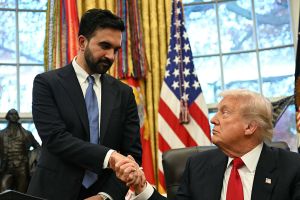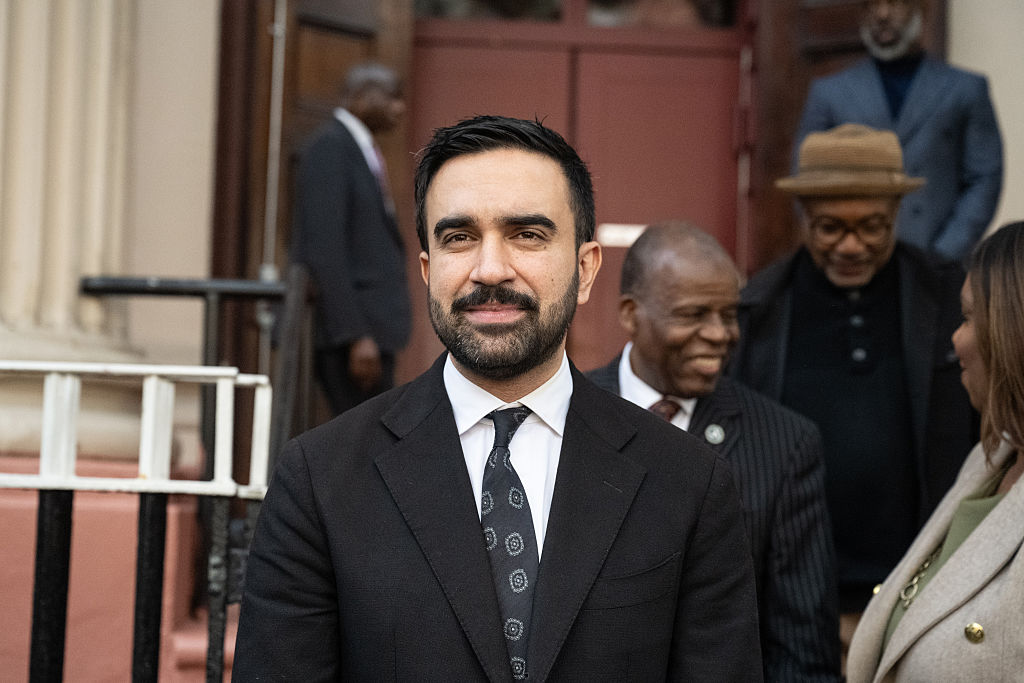Most days, outside the local courtroom where I live in London’s Finchley Central, a man holds up a placard that says in big black capitals: ALL OUR BRAINS ARE MICROCHIPPED BY THE SECURITY SERVICES. It’s a foolish conspiracy theory, of course, but it’s also a symptom of the fear and loathing of the state which has grown in recent years and which, according to this lucid and persuasive book, threatens to return us to a time when we were governed by the whims of a monarch whose wishes were implemented arbitrarily by his family, friends and flatterers.
The problem, say Stephen E. Hanson and Jeffrey S. Kopstein in The Assault on the State, is not that this presages an end to democracy. It does; but the threat is to “modern state administration in general — upon which any workable democratic system of government must depend.” If you destroy this administration, you get bad, authoritarian and worst of all unpredictable government. One of the reasons dictatorships are so awful to live under is that there is no rulebook. You cannot know how to keep safe. Most victims of Stalin’s purges honestly believed they had done nothing to offend the dictator.
Democracy is necessary but not sufficient. Leaders such as Narendra Modi, Viktor Orbán and Donald Trump can claim to have been elected democratically. In 1933, Adolf Hitler could properly make that claim, too. Neither is this a left-right battle. Now, the main danger comes from what we call the far right, with its “deep state” conspiracy theories and its demonizing of the civil service and judiciary. But the phrase “deep state” started out on the left, whose rhetoric sometimes suggests that the state stands between the people and socialism. Get rid of the civil service, the judiciary, the police and the security services, and who will protect you when the leader you’ve elected turns on you? Right now the danger comes from politicians such as Trump, Marine Le Pen, Orbán and Benjamin Netanyahu sabotaging the machinery of government in the name of democracy.
In Britain, only eight years since the Daily Mail ran pictures of senior judges on its front page alongside the headline ENEMIES OF THE PEOPLE — a phrase associated with Stalin to describe those who were liquidated during the terror. The crime these judges had committed against the people was to rule that Brexit could not be triggered without a Westminster vote. Perhaps the newspaper thought, as Trump would have, that they were part of the “deep state.” In the same spirit, Netanyahu, as the authors put it, “serially attacked the courts, the civil service, universities and the police,” the instruments of what he too called the “deep state.”
The mantra is: “They’re all the same.” It’s now most often heard from the far right, but was also the theme of a book by Ken Livingstone called If Voting Changed Anything They’d Abolish It. The argument is that it’s no good voting in a new government if you have the same old civil service, judges and experts. (Authoritarians hate experts.)
It is BS. What stops democratic politicians from delivering on their promises is not an intransigent bureaucracy but their own lack of will or clarity or grip. In Britain, as in other democratic countries, prime ministers who know what they want and do their homework can use the civil service to deliver for them. Since 1945, Brits have had two such prime ministers, Clement Attlee and Margaret Thatcher, and they both turned the supertanker around without needing to replace the state’s experts with their own placemen.
“The assault on the modern state has not yet destroyed it,” say Hanson and Kopstein, “but it has generated a global struggle between two principles of rule — in short, the rule of law versus the rule of men — the outcome of which has yet to be decided.” The authors, who are American academics, believe it has three roots: Christian nationalism, anger at encroachments on Republican presidents by “liberal judges and bureaucrats,” and libertarians. The new authoritarians, they say, take their inspiration from Vladimir Putin, who relies on old friends to advise him.
Hanson and Kopstein write:
When the state as we know it disintegrates and is replaced by the arbitrary rule of powerful men and their political households, it will become perfectly clear that neither libertarianism nor social democracy is attainable — only the politics for survival for oneself and one’s loved ones in a violent world of competing clans and empires.
Their book is short, clearly written and dreadfully important. It does not advocate this or that political or economic theory. It does not even particularly defend democracy. It gives us the unwelcome but unavoidable news that state bureaucracy — the thing we love to hate, the pantomime villain of politics, the second best source of jokes after mothers-in-law — is crucial to our happiness, freedom and well-being, and is in mortal danger.
This article was originally published in The Spectator’s UK magazine. Subscribe to the World edition here.

























